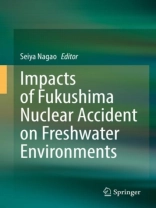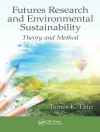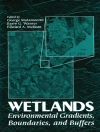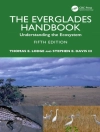This book examines the impacts of radionuclides released from the 2011 Fukushima Daiichi Nuclear Power Plant (FDNPP) accident on inland aquatic environments. The focus is on the dynamics of radiocesium in inland aquatic environments.
The book comprises three parts: migration behavior of radiocesium in river and lake environment, accumulation of radiocesium into organisms in freshwater, and integrated environmental analysis in a lake system and a forest-freshwater system. Many studies on the dynamics of radionuclides have been published after the FDNPP accident, especially of radiocesium (134Cs 137Cs) in land and marine environment. The key features of this book are the new data of freshwater environment including transport of radionuclides in river and lake watershed, and accumulation of radiocesium in freshwater fishes and insects. Another feature of this book is that it summarizes the dataset of a model lake, Lake Akagi-Onuma, from geochemical andbiological approaches.
Readers will learn the actual dispersion behavior of radionuclides released from the Fukushima accident and their impacts on freshwater environments since the accident in 2011. The book presents valuable information for assessing the impacts of the FDNPP accident on ecosystem and human health, which are also useful in developing countermeasures for similar accidents and environmental contaminations.
Содержание
1 Introduction.- Part 1 Rivers and lake environment.- 2 Migration behavior of radiocesium released from the Fukushima accident in Japanese river systems during six months after the accident.- 3 Spatial and temporal fluctuations of nuclear accident-derived
137Cs and
3H concentration in river waters in eastern Fukushima, Japan.- 4 Spatial and temporal changes of
137Cs concentrations in river waters and the relations with the radiocesium inventory in Fukushima and adjacent areas.- 5 Inflow/ outflow of radiocesium in a dam lake and its accumulation on lake bottom.- 6 Record of income and outgo of radioactive cesium in lake Cyuzenji.- Part 2 Ecosystem.- 7 Relationship between air dose rate and
137Cs concentration of the fish in mountain streams in Fukushima Prefecture.- 8 Annual changes of
137Cs concentrations in freshwater fishes.- 9 Radiocesium concentrations in brown trout in Lake Chuzenji after the Fukushima Daiichi Nuclear Power Plant accident.- 10 Body size effect of radiocesium for wakasagi (
Hypomesus nipponensis).- 11 Variations in
134+137Cs radioactivity level of suspended particulate matter in streams and its respond to aquatic insect after FDNP accident.- 12 A review of radioactive contamination in a freshwater ecosystem in Nikko area, Japan (tentative).- Part 3 Case studies at different watershed environments.- 13 The dynamics of radiocesium in the lake ecosystem of lake Onuma on Mt. Akagi.- 14 Radiocesium transfer from forest catchment to freshwater fish living in mountain streams estimated from environmental monitoring data in Fukushima Prefecture.
Об авторе
Seiya Nagao is a Professor and the Director, Institute of Nature and Environmental Technology (K-INET), Kanazawa University, Japan. Main topic of the K-INET focuses on transboundary pollution via atmosphere and ocean at East Asia under the Joint-Usage/Research program organized by the Ministry of Education, Culture, Sports, Science and Technology, Japan. His carrier has positions in institution and academia, including Japan Atomic Energy Research Institute (present: Japan Atomic Energy Agency), Hokkaido University and Kanazawa University. His research interests are fate of organic matter and radionuclides in aquatic environments. He also interests integrated environmental studies at atmosphere-land-coastal ocean, based on migration behavior of geo-materials.












